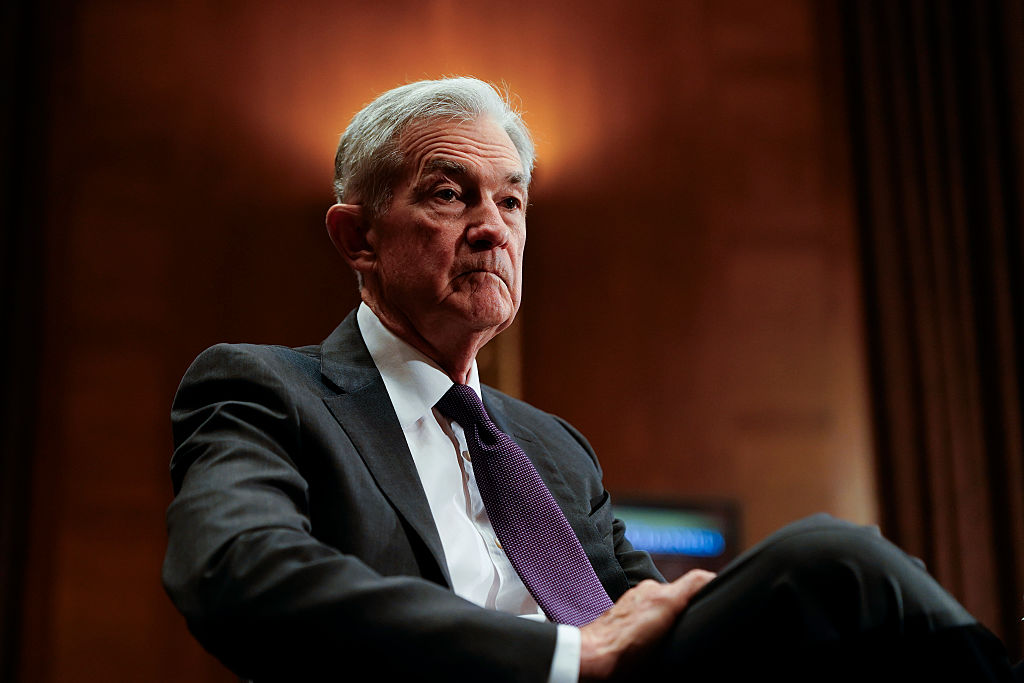US inflation drops to 7.7%
Costs for rents increased, but the price of cars, clothes and medical care helped slow the rate of inflation in the US


Get the latest financial news, insights and expert analysis from our award-winning MoneyWeek team, to help you understand what really matters when it comes to your finances.
You are now subscribed
Your newsletter sign-up was successful
Want to add more newsletters?

Twice daily
MoneyWeek
Get the latest financial news, insights and expert analysis from our award-winning MoneyWeek team, to help you understand what really matters when it comes to your finances.

Four times a week
Look After My Bills
Sign up to our free money-saving newsletter, filled with the latest news and expert advice to help you find the best tips and deals for managing your bills. Start saving today!
US inflation slowed in October.
The consumer price index rose 7.7% year on year in October, the smallest annual increase since the start of the year.
The figure is below the 8% forecast by economists and down from 8.2% last month.
MoneyWeek
Subscribe to MoneyWeek today and get your first six magazine issues absolutely FREE

Sign up to Money Morning
Don't miss the latest investment and personal finances news, market analysis, plus money-saving tips with our free twice-daily newsletter
Don't miss the latest investment and personal finances news, market analysis, plus money-saving tips with our free twice-daily newsletter
This reading suggests inflation might have peaked, taking pressure off the Federal Reserve, America’s central bank, which has been trying to combat rising prices by hiking interest rates.
Currently, interest rates in the US sit at 4% after a 0.75% hike last week, their highest level since early 2008.
While Federal Reserve chair Jerome Powell has warned that rates will need to rise further to curtail inflation, the slowdown has ignited speculation the Fed will slow the pace of increases in the coming months.
Why did US inflation decrease?
A lower than expected rise in rent and housing costs was the main reason for the slowdown in US inflation last month.
That said, the property market in the US remains hot, so it could take some time before prices come down sustainably.
Car prices, costs for clothes, medical care and airline fares all declined. The price of food has also stopped rising as quickly as it was before and energy prices in the US have been lower than in Europe, as it’s far less reliant on foreign gas and oil.
However petrol prices did increase slightly, and restaurant prices and hotel rates also remain high.
UK inflation figures are due out 16 November, however the latest data from the Office for National Statistics showed today the economy shrank 0.2% as we head towards a recession.
How did the markets react?
Investors welcomed the figures, with share prices rising in the US, Europe and Asia.
The S&P 500 index rose 5.5% after the data was published, and the Nasdaq Composite index closed 7.4% higher.
Hong Kong’s Hang Seng index rose 5.5%, China’s CSI 300 index gained 1.9% and Tokyo’s Topix index 1.8%.
In Europe the Stoxx 600 gained 2.7%, while the FTSE 100 and the FTSE 250 gained 1% and 3.9% respectively.
The dollar fell 2.3%, while sterling jumped over three cents to $1.17.
Get the latest financial news, insights and expert analysis from our award-winning MoneyWeek team, to help you understand what really matters when it comes to your finances.
Nic studied for a BA in journalism at Cardiff University, and has an MA in magazine journalism from City University. She has previously worked for MoneyWeek.
-
 How should a good Catholic invest? Like the Vatican’s new stock index, it seems
How should a good Catholic invest? Like the Vatican’s new stock index, it seemsThe Vatican Bank has launched its first-ever stock index, championing companies that align with “Catholic principles”. But how well would it perform?
-
 The most single-friendly areas to buy a property
The most single-friendly areas to buy a propertyThere can be a single premium when it comes to getting on the property ladder but Zoopla has identified parts of the UK that remain affordable if you aren’t coupled-up
-
 How a dovish Federal Reserve could affect you
How a dovish Federal Reserve could affect youTrump’s pick for the US Federal Reserve is not so much of a yes-man as his rival, but interest rates will still come down quickly, says Cris Sholto Heaton
-
 New Federal Reserve chair Kevin Warsh has his work cut out
New Federal Reserve chair Kevin Warsh has his work cut outOpinion Kevin Warsh must make it clear that he, not Trump, is in charge at the Fed. If he doesn't, the US dollar and Treasury bills sell-off will start all over again
-
 'Investors should brace for Trump’s great inflation'
'Investors should brace for Trump’s great inflation'Opinion Donald Trump's actions against Federal Reserve chair Jerome Powell will likely stoke rising prices. Investors should prepare for the worst, says Matthew Lynn
-
 'Governments are launching an assault on the independence of central banks'
'Governments are launching an assault on the independence of central banks'Opinion Say goodbye to the era of central bank orthodoxy and hello to the new era of central bank dependency, says Jeremy McKeown
-
 Will Donald Trump sack Jerome Powell, the Federal Reserve chief?
Will Donald Trump sack Jerome Powell, the Federal Reserve chief?It seems clear that Trump would like to sack Jerome Powell if he could only find a constitutional cause. Why, and what would it mean for financial markets?
-
 Can Donald Trump fire Jay Powell – and what do his threats mean for investors?
Can Donald Trump fire Jay Powell – and what do his threats mean for investors?Donald Trump has been vocal in his criticism of Jerome "Jay" Powell, chairman of the Federal Reserve. What do his threats to fire him mean for markets and investors?
-
 Do we need central banks, or is it time to privatise money?
Do we need central banks, or is it time to privatise money?Analysis Free banking is one alternative to central banks, but would switching to a radical new system be worth the risk?
-
 Will turmoil in the Middle East trigger inflation?
Will turmoil in the Middle East trigger inflation?The risk of an escalating Middle East crisis continues to rise. Markets appear to be dismissing the prospect. Here's how investors can protect themselves.
